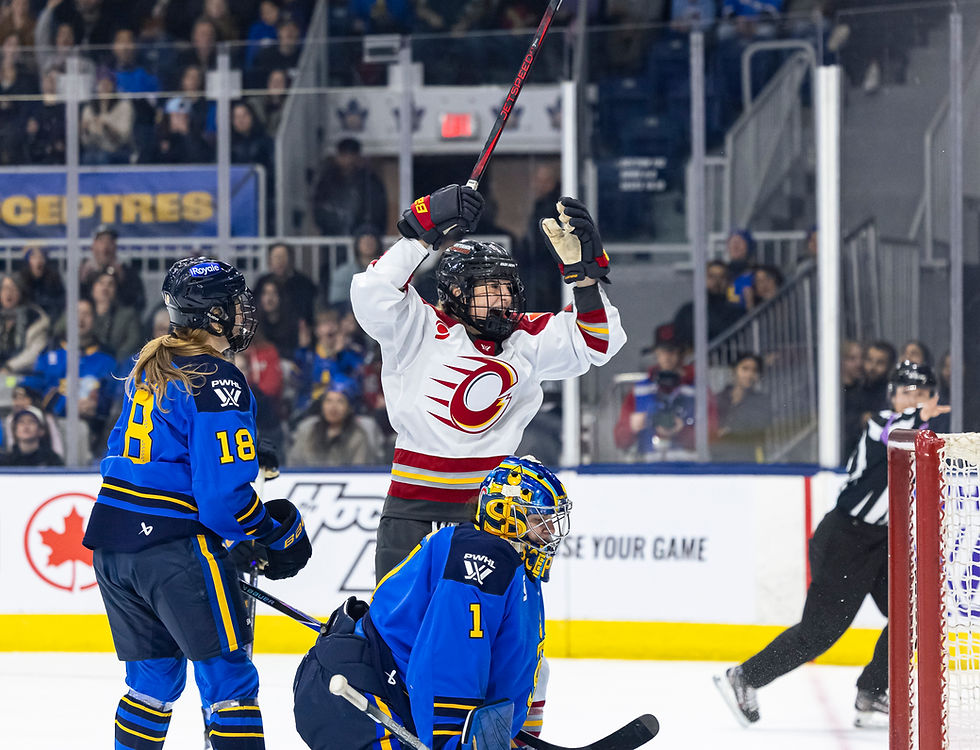How the Habs are failing their meritocracy
- mitch11fox
- Dec 4, 2023
- 3 min read

By: Adam Floujeh
Being a fan of a rebuilding team can be just as frustrating as cheering for a playoff contender… if not worse.
Rebuilding teams are at rock bottom, selling off veteran players for futures, tanking for the best draft order and essentially selling fans on hope.
The real stress comes after a team has been stripped to the bone, the foundation has been built and the walls start going up. That is what Montreal Canadiens fans are going through.
The Habs have plenty of draft picks and loads of prospects from Lane Hutson in the NCAA to David Reinbacher in the Swiss league. They also have players like Joshua Roy who are NHL-ready in the American Hockey League, just waiting for that call-up.
The hype of a prospect isn’t the worrying part of a rebuilding team, it’s what happens when those players make the show and how the big club handles them. For the Habs, the priority at this point should be building culture – admittedly a hockey buzzword – and the development of their younger players.
If we turn back the clock to Oct. 8, we see the Canadiens waive Joel Armia after an underwhelming training camp. What the Habs did with that move, before playing a single game, was set the tone of a meritocracy within the organization.
If you want to play, you must perform.
A quarter of the way through the 2023-24 season, the Montreal Canadiens sit seventh in the Atlantic division. They are dead last in the NHL with four regulation wins.
Although wins don’t ultimately matter for rebuilding teams, Montreal themselves set a higher standard internally, while at the same time keeping the development of young players as a priority.
Now, that doesn’t mean those players should just have their ice time handed to them on a silver platter. Again, the Habs have set the example of a meritocracy. However…
All this appears to have been thrown out the window following the Habs’ loss to the Florida Panthers on Thursday, a notable victim being Juraj Slafkovsky.
Practice lines on Saturday have exposed the hypocrisy in Montreal’s thinking.
November was the best month in Slafkovsky’s young NHL career. The Slovak found chemistry playing with Cole Caufield and Christian Dvorak and was even hitting the score sheet, with five points in his last seven games.
The results of his play?
Being demoted to the third line with Tanner Pearson and Jake Evans while Josh Anderson, who now has fewer goals than Pittsburgh Penguins goaltender Tristan Jarry, has been put onto the second line with Brendan Gallagher and Dvorak.
I am not, nor will I be, the last person to talk about Anderson’s struggles this season and with all due respect, he turns 30 years old in May. He still has three years on his contract after this season. Frankly, Anderson won't be a contributor when the Canadiens are playoff contenders. Slafkovsky, meanwhile, is arguably the most important piece of the Habs' future.
What part of being a meritocracy justifies your first overall pick getting shafted when he’s objectively earned his spot?
With Alex Newhook suffering a high ankle sprain and projected to be out 10-12 weeks, Caufield has been reunited with Nick Suzuki on the top line with Sean Monahan taking the third spot. Monahan scored a single goal in November.
From Kirby Dach’s injury in October until the previously mentioned Panthers game, Josh Anderson was playing the bumper position (in the high slot) on the first powerplay unit, a position in which he scored a grand total of one assist (one of his three total points on the year). Slafkovsky, on the other hand, has remained on the second powerplay unit.
If the team is already near the bottom of the standings and looking to improve, why not try giving a former first-overall pick a chance to boost his offence?
There are plenty of positives around this Habs team. Kaiden Guhle is having a breakout year and Samuel Montembeault is playing at the same reliable level he was last season, earning him a three-year contract extension.
None of that matters, though, if Montreal fails with Slafkovsky.




Comments